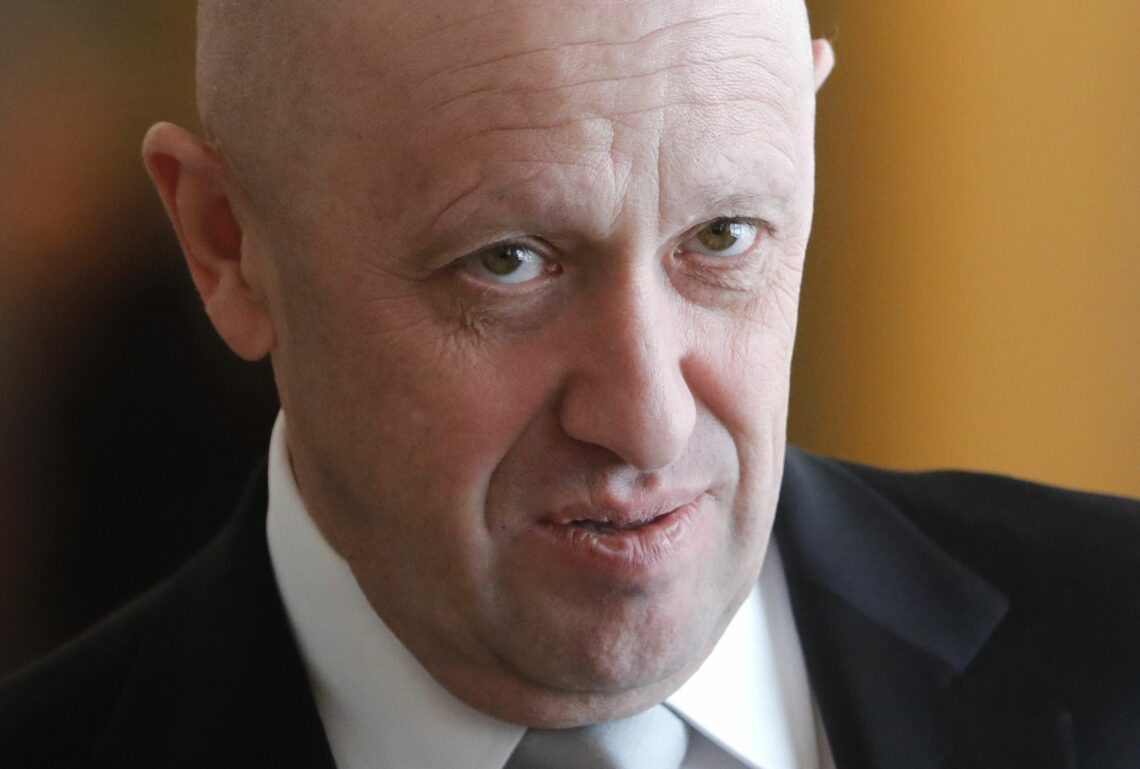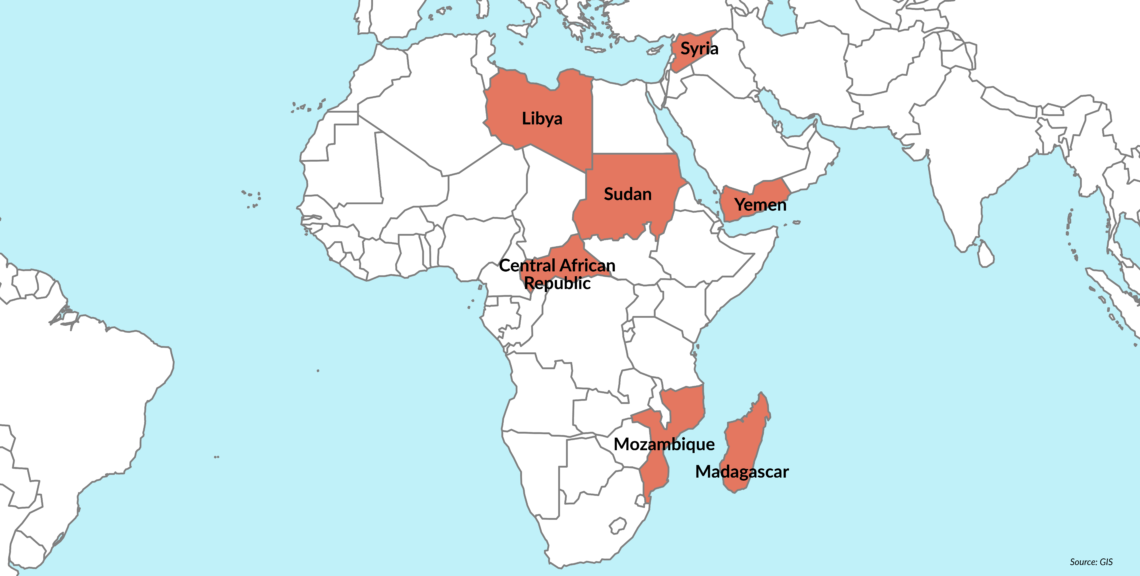Russia’s strategy for Africa
While the Kremlin has no official ties to the Wagner Group, it is an open secret that the private military company goes wherever Moscow sees economic or political opportunities to be seized. The organization has been giving Russia a growing foothold in Africa.

In a nutshell
- The Wagner Group has become influential in Africa
- It gives the Kremlin indirect leverage on the continent
- If European forces withdraw, Russia will fill the void
Over the last decade, Moscow has been striving to assert itself as a superpower, one that competes in the same arena as the United States and China. In this endeavor, the Wagner Group has become a crucial tool, and Russia increasingly relies on the paramilitary organization to gain footholds in resource-rich but unstable African states.
The company is believed to be owned by Yevgeniy Viktorovich Prigozhin – a close associate of the Russian president dubbed “Putin’s chef” by the media because of his background in catering. Lieutenant Colonel Dmitry Utkin, a former military intelligence agent for the Kremlin, leads the Wagner Group’s operations.
Successful strategy
During the Cold War, Moscow worked hard to spread communism in the newly independent countries of Africa. But with the collapse of the Soviet Union, its influence on the continent waned until 2006, when President Vladimir Putin decided to bolster Russia’s presence in the region. Between 2015 and 2019, Moscow signed 19 technical and military cooperation agreements with African states. These included weapons sales, but mostly comprised consultancy services and counterinsurgency and counterterrorism training.
The international community appears unwilling to understand the current level of threat coming from Africa.
Russia has considerable experience in fighting non-state actors. It often does so through mercenary units, operating in a gray zone for pragmatic reasons. The strategy is not new. As far back as the 1990s, there were several Russian security agencies providing services to businesspeople working in African nations. The turning point for this trend took place in 2014, after the international community imposed sanctions on Russia because of the Ukrainian conflict. Two parallel tactics for foreign engagement emerged: an official one, through direct contacts with local political leaders, and an unofficial one through private contractor companies like the Wagner Group.
The model has proven successful. It avoids open involvement of the Russian Army, and enables low-cost hybrid warfare. NATO is both ill-trained to respond to these kinds of hybrid threats and uninterested in the southern front on the African continent. Meanwhile, President Putin considers Africa “one of Russia’s top priorities.”
Facts & figures
Russian ambitions in Africa
Wagner Group troops are deployed in several African countries

The international community appears unwilling to understand the current level of threat coming from Africa. Climate change and wars could result in mass migrations to the north, and non-African actors like the Wagner Group could seriously destabilize security in the Mediterranean Sea through their involvement.
Covert tactics
The Wagner Group is much more than a private military company like the American Blackwater. They are not mercenaries sent out to fight for anyone who can pay; they defend Russian state interests. As a semi-state actor, they are used by the Kremlin as a tool to deal with local leaders all over the world. They have close ties to the Main Intelligence Directorate (GRU), and many Wagner Group soldiers are buried with full military honors.
The Wagner Group is essential to Russia’s strategy for Africa. Its first official operations were in Ukraine and Crimea, but now its soldiers are in the Central African Republic, Libya, Madagascar, Mali, Mozambique, Sudan, Syria and Yemen. All these nations have something in common: sociopolitical instability and resources. The modus operandi is always the same. The Kremlin provides covert military support to local elites and in exchange obtains concessions to exploit natural resources or strategic locations like air bases and ports.
In March 2018, private military companies were declared unconstitutional in Russia, but this seems not to have affected their exponential growth. They offer great advantages to the Kremlin. They can be deployed and relocated very quickly. They avoid shedding the blood of official Russian soldiers, as demonstrated in the battle of Deir ez-Zor in Syria, where 200 to 300 Wagner Group soldiers died in a fight against American special forces. The Russian government can also deny any connection to them, and they do not have to be paid out of state coffers. They are loyal only to Moscow. Because they are technically illegal, the Kremlin would have legal grounds to shut them down should they decide to find another master.
The U.S. imposed sanctions against individuals and entities connected to the Wagner Group, but to no avail. Africa Command Deputy Director of Operations Major Bradford J. Gering declared that “Russia has the power to stop them, just not the will.”
African approach
In recent years, the Wagner Group has been very active in Africa through transactional relationships. Mr. Prigozhin’s company M-Invest received exclusive rights to gold mining in Sudan. The deal was struck just after a meeting between President Putin and Sudanese president Omar al-Bashir who, before being overthrown in 2018, had offered a military base on the Red Sea to the Russian Navy. That same winter, the Wagner Group, which already had 500 men on the ground, quelled numerous local uprisings against Mr. al-Bashir.
Libya is of interest to Russia not only for its natural resources, but foremost for its strategic access to the Mediterranean. Russia cannot compete with the NATO forces there (STANAVFORMED), or with the U.S. Navy’s 6th Fleet. Control of even one Libyan port could be decisive for the Kremlin, which at the moment has only one direct access point to the Mediterranean – through the Syrian port of Tartus.
Wagner Group units appeared in Libya in April 2019, supporting Field Marshal Khalifa Haftar in his attack on the capital Tripoli from Cyrenaica. This involvement led many to accuse Moscow of conducting a duplicitous policy, on one hand taking part in the United Nations peace process and on the other sending fighters to the rebel warlord. Foreign Minister Sergey Lavrov has consistently denied any connection with private military companies.
Africa is wealthy in several metals and minerals that Russia desperately needs.
Mali could turn out to be Russia’s next big opportunity on the African continent. Next year France plans to withdraw half of its contingent for Operation Barkhane (probably moving some assets to Niger) after a military junta took power in August 2020. From the 5,000 soldiers there, half will be left to support the 600 Europeans in the Takuba Task Force against jihadi terrorism in the Sahel and the Greater Sahara. To Mali’s leaders, this seems insufficient, and they are considering other possible partners.
The Wagner Group is at the top of the list, with at least 1,000 men. A possible deal would have the contractors train Malian soldiers and protect the political elites as well as mines (of gold, diamonds and magnesium but also uranium). But strengthening the position of a military junta that came to power through a coup would lower the odds of democratic elections being held in the near future. European powers have already been clear in this regard: hiring Russian mercenaries would result in a mass withdrawal of the European contingent.
Africa is extraordinarily wealthy in several metals and minerals that Russia desperately needs. The continent would also present the Russian private sector with new business opportunities. Furthermore, presence on the ground would mean first-hand intelligence. There is no doubt that Moscow will become more involved in Africa in the years to come. But how will the West react? Will this be enough to mobilize NATO?
Scenarios
This scenario is improbable now, because it would require even more disengagement from NATO. If this were to happen, Russian private military companies would take over and the country would be left in Mr. Putin’s hands. This would be catastrophic for Mali but also for European countries that want to bring forces back in.
It is very probable that France will pursue this strategy, even if it represents a step backward for Western interests in the area. The void left by European units will certainly be filled by Russian mercenaries.
This would herald a reinvigoration of anti-terrorism in the entire Sahel. Through diplomatic means, NATO could be pressured into greater engagement in the region, counteracting the Russian and Chinese presence. But given Paris’s intentions to partially withdraw, this seems extremely unlikely.








